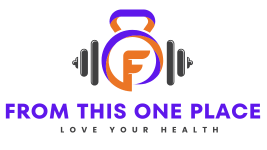Have you ever wondered if protein powder is safe for teenagers? With so many fitness trends and supplements out there, it’s important to know what’s safe and what’s not, especially for young adults who are still growing and developing. In this article, we’ll dive into the topic of protein powder and its safety for teenagers, giving you the information you need to make an informed decision.
Protein powder has become increasingly popular among fitness enthusiasts, bodybuilders, and athletes, but does it pose any risks for teenagers? The truth is, protein powder is generally safe for teenagers when used correctly and in moderation. Protein is an essential nutrient for growth and development, and teenagers have higher protein needs than adults due to their rapid growth and active lifestyles.
However, it’s important to choose the right type of protein powder and use it in the appropriate dosage. Throughout this article, we’ll explore the potential benefits and risks of protein powder for teenagers, giving you a comprehensive understanding of this supplement and how it may or may not fit into a teen’s diet and fitness routine. So, let’s get started!

What is protein powder?
Definition of protein powder
Protein powder is a dietary supplement that contains high levels of protein extracted from various sources such as whey, casein, soy, or peas. It is commonly used by athletes and fitness enthusiasts to aid in muscle growth, recovery, and weight management. Protein powders are available in various forms, including whey protein, casein protein, soy protein, and plant-based protein powders.
Types of protein powder
- Whey protein: Whey protein is one of the most popular and widely used types of protein powder. It is derived from milk during the cheese-making process and contains all nine essential amino acids. Whey protein is quickly absorbed by the body, making it an excellent choice for post-workout recovery.
- Casein protein: Casein protein is also derived from milk and is known for its slow digestion. It forms a gel-like substance in the stomach, resulting in a slow release of amino acids into the bloodstream. This makes casein protein suitable for prolonged periods of muscle repair and recovery, such as overnight.
- Soy protein: Soy protein, derived from soybeans, is a plant-based protein option. It is a complete protein, meaning it contains all essential amino acids. Soy protein is suitable for individuals who follow a vegetarian or vegan diet or have dairy allergies.
- Plant-based protein: Plant-based protein powders are derived from sources such as peas, hemp, rice, or quinoa. These powders provide a vegan-friendly option for individuals who prefer to avoid animal products. Plant-based proteins may have slightly lower protein content compared to animal-based powders, but they offer a variety of other nutritional benefits.
How protein powder works
Protein powder works by providing the body with a concentrated source of amino acids, which are the building blocks of proteins. When consumed, protein powder is digested and broken down into amino acids, which are then absorbed by the body and used to build and repair muscle tissues.
Protein plays a crucial role in muscle growth and repair. When you exercise, your muscles undergo small tears, and protein is necessary for the rebuilding process. Consuming protein powder can help support this process and enhance muscle recovery and growth.
Benefits of protein powder
Muscle building and repair
Protein is essential for building and repairing muscles, and protein powder can help ensure an adequate protein intake for teenagers who are active or engaging in sports. Protein powders provide a convenient and quick way to meet increased protein requirements during periods of growth and intense physical activity.
Weight management
Protein powder can be a useful tool for teenagers who are trying to manage their weight. High-protein diets have been shown to increase feelings of fullness, reduce cravings, and support weight loss or maintenance. Protein powder can be used as a meal replacement or as a supplement to increase protein intake without adding excessive calories.
Increased energy levels
Protein plays a vital role in providing sustained energy levels throughout the day. It helps regulate blood sugar levels, preventing energy crashes and promoting focus and concentration. Increasing protein intake, either through food or protein powder, can help teenagers maintain steady energy levels and improve overall performance.

Protein powder safety concerns
Potential effects on growth
There has been a concern that consuming protein powder during adolescence may have negative effects on growth and development. However, research suggests that as long as protein powder is used in moderation and as part of a balanced diet, it does not stunt growth. In fact, protein is essential for growth and development during the teenage years, and protein powder can help meet increased protein needs.
Allergies and sensitivities
Protein powders derived from animal sources, such as whey and casein, may pose a risk for individuals with allergies or sensitivities to dairy products. It’s important for teenagers with these allergies to choose alternative protein powders, such as soy or plant-based options, that are free from dairy. Additionally, it’s recommended to read product labels carefully to ensure there are no hidden allergens.
Contamination risks
It’s essential to choose a reputable brand when purchasing protein powder to minimize the risk of contamination. Some protein powders have been found to contain heavy metals, such as lead, mercury, or arsenic, which can pose health risks if consumed in large amounts over time. Look for protein powders that have undergone third-party testing to ensure purity and safety.
Understanding protein requirements for teenagers
Recommended protein intake for teenagers
The Recommended Dietary Allowance (RDA) for protein varies depending on age, sex, and activity level. For teenagers aged 14-18, the RDA for protein is 46-52 grams per day for girls and 52-61 grams per day for boys. However, athletes or teenagers engaging in intense physical activity may require higher protein intake to support muscle repair and growth.
Factors influencing protein needs
Several factors can influence a teenager’s protein needs, including age, bodyweight, growth and development, physical activity levels, and overall health. Teenagers who are more active or participate in regular exercise may require a higher protein intake to support muscle recovery and growth.
Sources of protein for teenagers
Protein can be obtained from a variety of food sources, including lean meats, poultry, fish, dairy products, eggs, legumes, nuts, and seeds. It’s recommended to include a variety of protein sources in the diet to ensure a complete amino acid profile. While protein powders can be a convenient way to supplement protein intake, they should not replace whole food sources of protein.

Research on protein powder and teenagers
Studies on protein powder consumption in teenagers
Several studies have been conducted to examine the effects of protein powder consumption in teenagers. A study published in the Journal of Sports Sciences found that protein supplementation in adolescents engaging in resistance training resulted in increased muscle strength and size compared to a placebo group.
Potential risks and side effects
While protein powder is generally safe when used appropriately, excessive protein intake can put strain on the kidneys and liver. It’s important for teenagers to follow recommended dosage guidelines and not exceed their daily protein needs. Additionally, inadequate fluid intake when consuming protein powders may lead to dehydration.
Long-term effects on health
Long-term effects of protein powder consumption in teenagers are still being studied. It’s essential to approach protein powder usage with caution and prioritize whole food sources of protein. Teenagers should aim to achieve their protein needs through a balanced diet and view protein powder as a supplement rather than a replacement for real food.
Guidelines for safe protein powder usage
Consulting a healthcare professional
Before starting any dietary supplements, including protein powder, it’s advisable to consult with a healthcare professional, such as a doctor, registered dietitian, or sports nutritionist. They can provide personalized recommendations based on the teenager’s specific needs, health status, and goals.
Choosing a reputable brand
To ensure the safety and quality of protein powders, it’s important to choose products from reputable brands that undergo third-party testing. Look for certifications such as NSF International, Informed-Choice, or ConsumerLab to ensure the product has been tested for purity and quality.
Proper dosage and timing
Teenagers should follow the recommended dosage guidelines provided by the manufacturer. Protein powders are generally consumed either pre-workout or post-workout to support muscle recovery and growth. Timing can vary depending on individual preferences and training goals.

Alternatives to protein powder
Natural food sources of protein
Whole foods provide essential nutrients along with protein, making them an ideal choice for meeting daily protein needs. Incorporate lean meats, poultry, fish, eggs, dairy products, legumes, nuts, and seeds into the diet to ensure a well-rounded intake of protein and other vital nutrients.
Plant-based protein options
For teenagers following vegetarian or vegan diets or who have dairy allergies or sensitivities, plant-based protein options can be a suitable alternative to protein powders. Sources such as soy, peas, hemp, rice, or quinoa offer protein-rich options that can be included in meals or smoothies.
Protein-rich recipes for teenagers
Encourage teenagers to explore protein-rich recipes that incorporate whole foods. Examples include grilled chicken or tofu with vegetables, Greek yogurt with fruits and nuts, or smoothies made with milk or plant-based milk alternatives, fruits, and protein-rich add-ins like nut butter or chia seeds.
Case studies and personal experiences
Testimonials from teenagers using protein powder
Many teenagers who incorporate protein powder into their diet have reported positive experiences with increased muscle recovery, improved athletic performance, and better weight management. However, it’s important to note that individual results may vary, and proper usage and dosage are key to achieving desired outcomes.
Real-life examples of positive/negative outcomes
There have been cases where teenagers have misused protein powders by consuming excessive amounts or substituting them for whole foods, leading to imbalances in their diet. This can result in adverse health effects or an unhealthy relationship with food. It’s crucial to emphasize the importance of a balanced and varied diet.
Professional opinions and insights
Experts in the field of sports nutrition and adolescent health highlight the importance of prioritizing whole food sources of protein and viewing protein powder as a supplement rather than a primary protein source. They emphasize the need for proper education and guidance to ensure safe and responsible usage among teenagers.

Discussing protein powder with teenagers
Educating teenagers on protein supplementation
Engage teenagers in conversations about protein supplementation and the role it can play in their overall nutrition and fitness goals. Educate them about the benefits and potential risks associated with protein powder usage and highlight the importance of balanced meals and whole food sources of protein.
Addressing safety concerns and myths
Address any safety concerns or myths that teenagers may have regarding protein powder. Clarify that protein powder, when used properly and in moderation, is safe for teenagers and does not stunt growth. Emphasize the importance of choosing quality products and proper dosing.
Encouraging healthy dietary choices
Teach teenagers about the importance of a well-rounded diet that includes a variety of foods from different food groups. Encourage them to prioritize whole foods and educate them on the specific nutritional benefits of different protein sources. Help them understand that protein powder should complement a healthy diet, not replace it.
Conclusion
In conclusion, protein powder can be safe for teenagers when used appropriately and as part of a balanced diet. Protein powder can support muscle growth and recovery, aid in weight management, and provide sustained energy levels. It is crucial to choose a reputable brand, follow recommended dosage guidelines, and prioritize whole food sources of protein. By educating teenagers about safe usage and encouraging healthy dietary choices, protein powder can be a beneficial addition to their nutrition and fitness routine.




